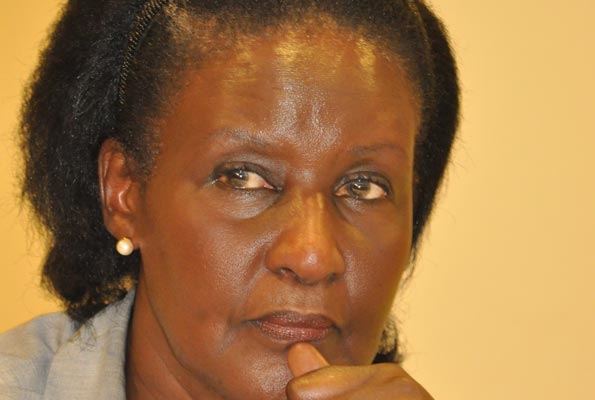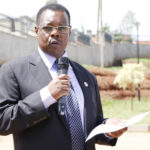The Uganda National Bureau of Standards (UNBS) has launched celebrations to mark 30years of service with a blood donation drive in partnership with Uganda Blood Transfusion Services to cater for the increasing demand for blood among health centres across the country.
Speaking at the function as the Chief Guest, the Minister of Trade Industry and Cooperatives, Amelia Kyambadde, commended UNBS for the initiative to address the increasing demand for blood in hospitals. “Our hospitals are in constant need of blood and I want to thank you for undertaking such an activity as part of your corporate social responsibility,” Kyambadde said.
Kyambadde also commended UNBS for introducing the Use of Distinctive Mark Regulation 2018 which makes it mandatory for goods covered by compulsory standards to be certified before they are allowed on the market.
“This regulation will go a long way in improving the competitiveness of locally manufactured products. It is in line with the policy target of certifying 75 per cent of locally manufactured products,” she said.
The Executive Director, UNBS, Dr. Ben Manyindo highlighted key achievements of UNBS over the 30 years. Dr Manyindo noted that UNBS started by offering limited services but it has since transformed into fully fledged standardization body offering a full range of services including standards development, product and management systems certification, product testing, calibration of equipment, verification of measuring equipment, imports inspection, and market surveillance, among others.
“In 1994 UNBS developed the first Uganda Standard US 201:1994 portable drinking water; to-date we have developed 3,621 standards which have contributed to government efforts to promote locally manufactured products under the Buy Uganda, Build Uganda (BUBU) policy,” Dr. Manyindo said.
He noted that UNBS laboratory testing at UNBS has grown from carrying out relatively simple tests like PH, moisture content and product dimensions, to offering complicated tests such as pesticide residue analysis of foods and detection and quantification of veterinary drug residues in foods of animal origin and detection and quantification of pathogenic (disease causing) microorganisms in food and non-food products.
Dr. Manyindo added that the UNBS labs are now internationally accredited which means their results are recognized globally. “Our labs now act as centers of excellence in training other laboratory practitioners from industry and other government institutions both from Uganda, the EAC region, and many African countries,” Dr. Manyindo added.
He said UNBS has also decentralized its services to regional offices in Gulu, Mbale and Mbarara to increase access of its services upcountry. UNBS also has offices Lira, Katwe, Jinja that focus on weights and measures.
Dr. Manyindo noted that UNBS has automated most of its services to improve efficiency and accessibility. “All our electronic services can be accessed on the UNBS mobile app and website,” he said.








